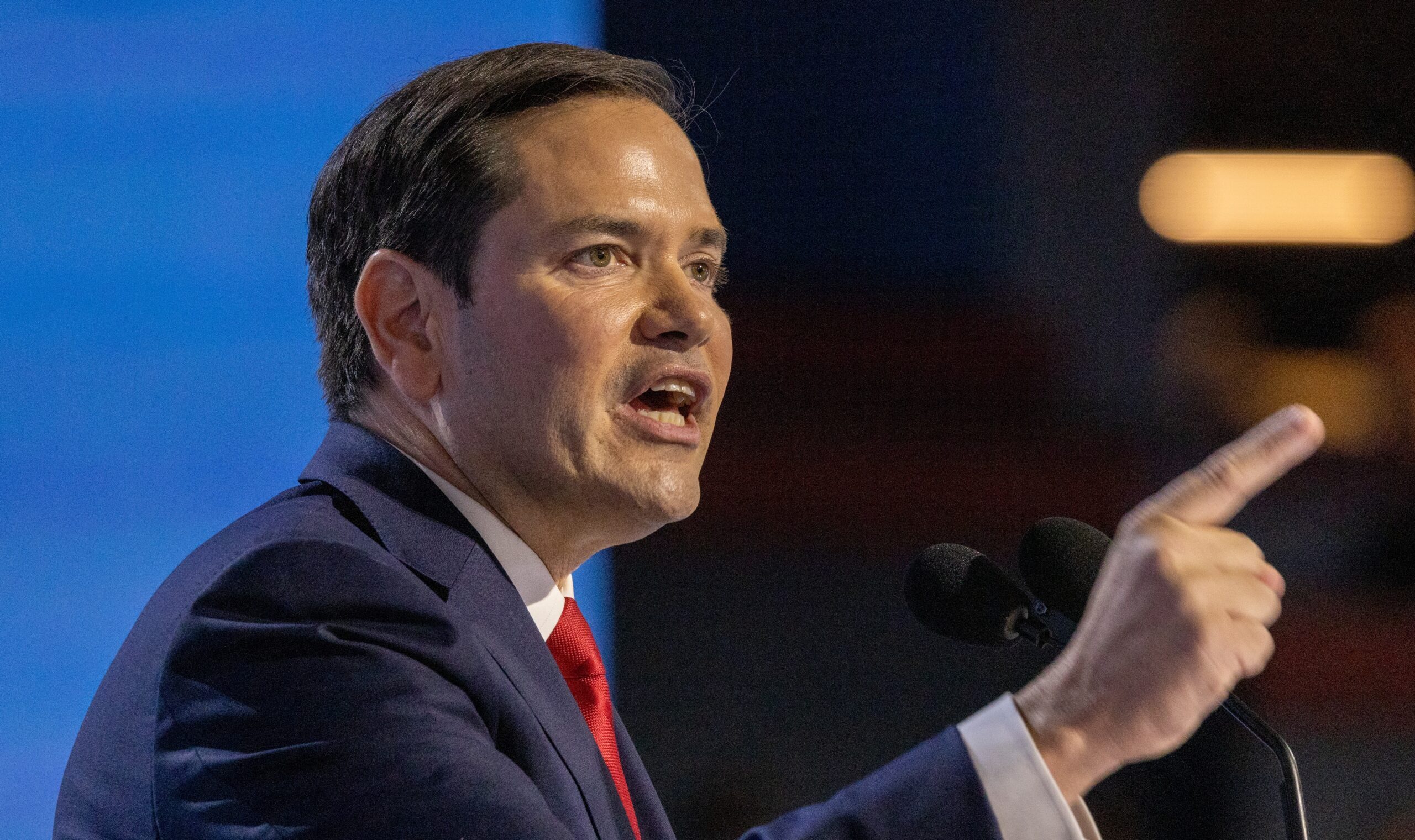Trump Should Dump the Venezuela Hawks
Secretary of State Marco Rubio is undermining the president’s America First agenda.

President Donald Trump is acting pragmatically in the Middle East and Europe to protect America’s interests, but when it comes to Latin America, he is being undermined by neoconservatives in his own administration.
One battleground is Venezuela policy, and one admin neocon is Secretary of State Marco Rubio.
Trump started his second term by pursuing warmer relations with Venezuela. One motivation was to avoid losing access to the largest proven oil reserves on Earth.
But a post-February shift back to the previous policy—economic strangulation—suggests that Rubio has taken charge. The secretary of state has long advocated isolating Venezuela and imposing ever tighter sanctions against it.
Rubio’s ultimate aim in Venezuela may be to overthrow the regime of President Nicolás Maduro. While special envoy Richard Grenell has ruled out regime change in the country, Rubio has said Maduro is a “horrible dictator” who empowers America’s enemies and needs “to be dealt with.” Judging by the shift in policy, Grenell has lost influence on Venezuela as Rubio has settled into his new role as head of the State Department.
The ideological pursuit of regime change, as this century has taught us, leads to blowback and chaos. In Venezuela, it would likely result in higher energy costs, worse border security, and a China that acts more boldly and with more influence in the Western Hemisphere.
That is the direction we are headed in if Team Rubio continues to get its way.
In March, the U.S. revoked permits for foreign partners of Venezuela’s state oil firm, PDVSA. This followed news in February that Chevron, an iconic American corporation, may lose its operating license.
Plans were also announced for a 25 percent tariff on countries buying Venezuelan oil and gas. This measure will fail to squeeze China out of the market. In fact, China will continue to benefit from discounted Venezuelan oil. Meanwhile, oil prices will rise for the U.S.
Oil refineries on the Gulf Coast are dependent on Venezuelan crude, which means Americans are too. A supply shock would soon lift prices at the pump.
The secretary of state’s preferred policies would hobble American energy giants like Chevron while opening business opportunities for that firm’s Chinese and Iranian rivals. Surely the president’s policy of energy abundance is better served by letting U.S. companies drill where they like?
As a businessman, the president almost certainly grasps this reality. Moreover, he has often signaled his belief that realism and foreign-policy restraint—not interventionism—serve America best. Foreign policy, Trump believes, can be transactional without being weak.
If the Maduro administration stops accepting deportations as negotiated by the White House, then border security will suffer. El Salvador, despite making every effort, cannot take all deportees.
Trump has sought to accelerate deportations of Venezuelan migrants, sending them by the planeload to Venezuela, El Salvador, Honduras, and even the U.S. naval base of Guantánamo Bay.
The president remains locked in a protracted legal battle over the use of the Alien Enemies Act of 1798 as legal justification for deportation flights. If Venezuela, in reaction to hardline U.S. policies, stops cooperating on immigration, Trump will have another obstacle to deal with.
To achieve energy abundance, border security, and smooth relations with countries in America’s neighborhood, Trump should resist Rubio’s neoconservative push for regime change and reassert control over Venezuela policy soon, empowering the anti-neocon faction of his administration on the issue.
Grenell isn’t exactly an anti-neocon, but he’s more of a restrainer than Rubio, and he has channels with the Maduro government. Moreover, he seems to enjoy the support of a broader coalition within the cabinet, including Treasury Secretary Scott Bessent.
An America-First pivot back to the normalization efforts of January and February, when U.S. detainees were released from Venezuela and its government agreed to accept the return of illegal aliens, is not off the table.
The Venezuelan government has continued to cooperate on return flights, which proves reconciliation and an easing of tensions is possible. The next step should be a significant extension to Chevron’s license to operate in Venezuela, rather than letting it lapse on May 27.
The American people are not interested in interventionism against yet another nation that poses little threat to the homeland. In the 2024 election, they voted for lower prices, secure borders, and no regime-change wars. In 2016, they voted against a uniparty establishment that favors militarism abroad and is, at best, indifferent to the steady flow of migrants over the southern border.
In other words, they have endorsed President Trump’s policies, not Rubio’s.
To keep faith with the American people, the president should sideline the hawks. He has already done this on the Middle East and Europe. It is now time to apply that clarity of leadership to the Western hemisphere.
The post Trump Should Dump the Venezuela Hawks appeared first on The American Conservative.

